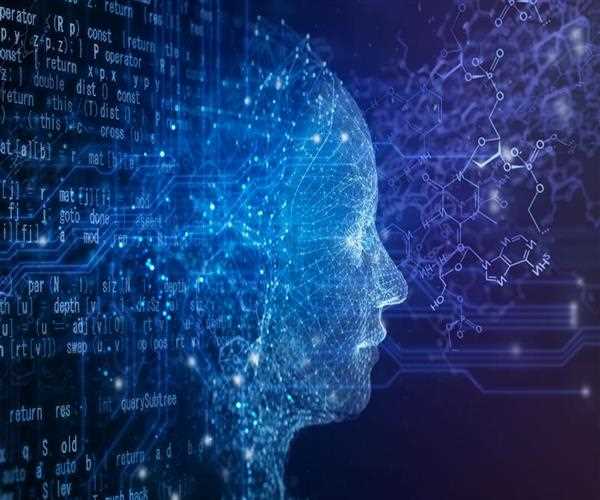
09-May-2023 , Updated on 5/9/2023 2:36:48 AM
Can artificial intelligence replace human intelligence in working place
With machines and algorithms replacing human workers in many industries, there has been a growing concern that the rapid development of artificial intelligence (AI) could result in widespread job displacement. While artificial intelligence (AI) has the potential to completely replace human workers in the near future, it is unlikely that it will completely automate many tasks currently performed by humans.
The fact that AI is still limited in its capabilities is one reason why it is unlikely to replace human workers. Although AI algorithms can be trained to perform specific tasks with high accuracy, they are unable to think creatively or solve problems in the way that humans do. This intends that there will continuously be a requirement for human specialists in fields that require these abilities, like examination, plan, and key preparation.
First and foremost, it's important to understand that Artificial intelligence is designed to automate repetitive tasks and perform complex computations at a much faster rate than humans. However, AI lacks the creativity, empathy, and critical thinking skills that are inherent to human intelligence. While AI can certainly analyze data and provide insights, it cannot make decisions based on intuition or personal experience.
Furthermore, AI is only as good as the data it is trained on. If the data is biased or incomplete, AI can produce inaccurate or even harmful results. In contrast, human intelligence has the ability to recognize and correct biases, making it more adaptable and flexible in the face of new information.
Another limitation of AI is that it cannot fully understand human emotions or behavior. While AI can certainly recognize patterns and predict outcomes based on data, it cannot accurately interpret the nuances of human behavior or emotions. This is particularly important in fields such as psychology, where empathy and understanding are critical components of patient care.
Additionally, there are certain tasks that require physical dexterity or human touch that AI simply cannot replicate. For example, a robot may be able to assemble a car more quickly than a human, but it cannot replicate the finesse required for tasks such as surgery or massage therapy.
Despite these limitations, AI has the potential to augment human intelligence and make the workplace more efficient and productive. By automating repetitive tasks and analyzing data at a faster rate, AI can free up human workers to focus on more creative and complex tasks that require critical thinking and problem-solving skills.
Moreover, AI can help to identify patterns and trends that may not be immediately apparent to humans, providing insights that can inform decision-making and improve outcomes. In this sense, AI can be a valuable tool for businesses and organizations, helping them to stay competitive and adapt to changing circumstances.
Due to the fact that many jobs require human interaction, AI is unlikely to replace human workers. Interpersonal skills and the capacity to empathize with customers are crucial for positions in the service industry, such as waiters, bartenders, and customer service representatives. Human workers will always be needed in these fields because these skills cannot be replicated by AI algorithms.
Moreover, the turn of events and organization of artificial intelligence innovation isn't occurring in a vacuum. It is likely that new industries and job opportunities will emerge as AI advances. For instance, new jobs in data science and machine learning have already been created as a result of the AI industry's expansion. Any potential job losses will likely be offset by the creation of even more job opportunities as AI advances.
Though, Artificial intelligence has the potential to create creatures that resemble humans and are better able than humans to analyze, sort, remember, and retrieve data. A human brain, on the other hand, can't be replaced because it works so well in all dimensions. our emotions, approach towards a certain situation, common sense, sudden changes towards a changing atmosphere, empathy, and parcel of different perspectives can't be imitated by any cyborg. The human brain is a wonderland where a vast amount of knowledge is stored, which no human can access in their own lives. Humans' conscious, subconscious, and superconscious minds are capable of storing all of the universe's knowledge, which cannot be replaced by supercomputers.
We are able to achieve life balance thanks to our rational thinking. Wisdom, which is a combination of numerous aspects about any small observation, is the only source of rational thinking. Artificial intelligence cannot produce creatures that are human-like and able to rationally respond simultaneously to a variety of life's variables. However they may fruitful in mirroring a couple of reactions of a person yet not every one of the complexities of human way of behaving. The human being is a one-of-a-kind creation of God's natural intelligence.
In conclusion, despite the fact that artificial intelligence (AI) has the potential to automate many of the tasks that are currently performed by human workers, it is highly unlikely that it will completely replace human workers. Artificial intelligence is as yet restricted in its capacities, and many positions require a human touch that can't be duplicated by machines. Additionally, new employment opportunities are being created as a result of the AI industry's expansion, reversing any potential job losses. As a result, it is highly unlikely that AI will soon replace human workers.

SEO and Content Writer
I am Drishan vig. I used to write blogs, articles, and stories in a way that entices the audience. I assure you that consistency, style, and tone must be met while writing the content. Working with the clients like bfc, varthana, ITC hotels, indusind, mumpa, mollydolly etc. has made me realized that writing content is not enough but doing seo is the first thing for it.
Join Our Newsletter
Subscribe to our newsletter to receive emails about new views posts, releases and updates.
Copyright 2010 - 2026 MindStick Software Pvt. Ltd. All Rights Reserved Privacy Policy | Terms & Conditions | Cookie Policy